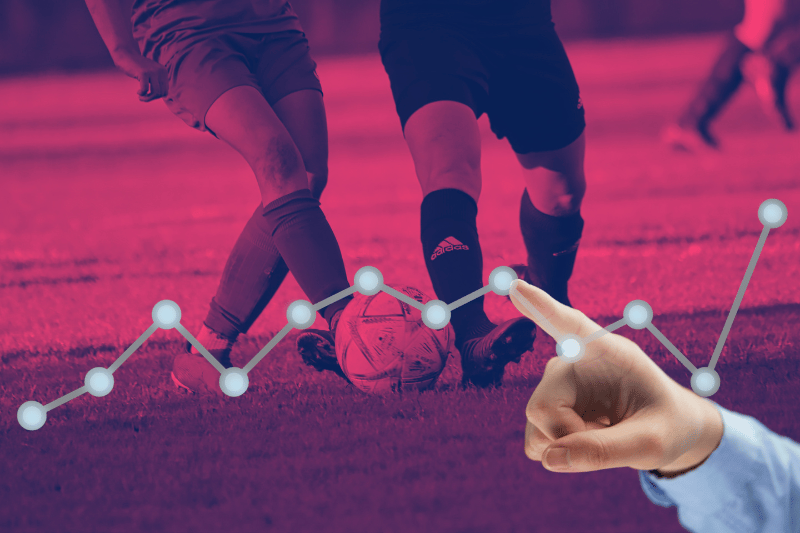
Data analytics is becoming one of the most important strategies to improve gameplay and performance in the world of football. Clubs put into place programs that use big data analytics to track player performance before games and after practices in order to continuously enhance player performance and lower the chance of injury. These programs' primary objectives are to increase the number of games played by the athletes and to shorten the intervals between injuries and subsequent recovery times.
Football teams, like many other organizations, exist to make money and maintain their long-term viability in hostile circumstances. Similar to human resources, scouting or player recruitment allows teams to acquire a competitive edge by locating and bringing in the top players. Michael Lewis first used the name "Moneyball" to describe a tactic used by the Oakland Athletics in the 2002 MLB season. Rather than using conventional scouting techniques, they used an analytical technique called Sabermetrics to build a winning club on a tight budget (Lewis, 2003). Due to the system's effectiveness, hiring an analytics team has become a common practice within the sports industry, which has disrupted and transformed conventional methods of player scouting and hiring.
 Traditional scouting methods had the main flaw of being restricted to the opinions of individual scouts and coaches. For a variety of prejudiced reasons, including their looks, personality, age, etc., players frequently get passed over. By creating fact-based insights to assist well-informed decisions, big data analytics for football takes the subjectivity out of decision-making and ensures success in both competitive and financial arenas by seeing value in players that others cannot see. Smaller football clubs now have additional chances to seek different economic models in order to maintain their viability thanks to big data in sports. A club can use a Transfer Strategy Business Model to continue operating profitably even in the absence of trophy victories. These groups are sometimes known more popularly as "Selling Clubs." This model is described by Andras and Havran (2015) as a system where a club finds and signs discounted players, fosters their growth, and then sells them at a profit to more powerful football clubs once they are fully developed.
Traditional scouting methods had the main flaw of being restricted to the opinions of individual scouts and coaches. For a variety of prejudiced reasons, including their looks, personality, age, etc., players frequently get passed over. By creating fact-based insights to assist well-informed decisions, big data analytics for football takes the subjectivity out of decision-making and ensures success in both competitive and financial arenas by seeing value in players that others cannot see. Smaller football clubs now have additional chances to seek different economic models in order to maintain their viability thanks to big data in sports. A club can use a Transfer Strategy Business Model to continue operating profitably even in the absence of trophy victories. These groups are sometimes known more popularly as "Selling Clubs." This model is described by Andras and Havran (2015) as a system where a club finds and signs discounted players, fosters their growth, and then sells them at a profit to more powerful football clubs once they are fully developed.
In-game data analytics is used to track player performance and ensure that they are listening to coaches and playing by the rules at all times. Let's say, for instance, that a coach tells his team to play a game more defensively in the second half. In that case, data analytics will be applied to determine whether the players adhered to his instructions correctly or if they ever lost focus. For fans to have a better viewing experience, broadcasters use data analytics in their football data feeds.
To choose the best camera positions and strategies throughout a game, for instance, broadcasters employ big data. In order to increase fan engagement, they also use it to foresee the most thrilling moments in a game and then broadcast them live.
Clubs can utilize data analytics to help fans become more involved in games by giving them access to real-time information about their favorite players and teams.Big data football scouting tools, for instance, can be used by broadcasters and club websites to give supporters information about the performances of their preferred players in real time during a match. This improves their sense of kinship with their club and raises overall fan involvement.
By assisting teams in making better decisions, big data analytics has the potential to make sports more exciting and competitive. Big data analytics, for instance, can assist teams in making wiser judgments regarding which players to sign, which players to trade for, and which players to release. More competitive matches result from this, which raises fan interest.
Big Data's continued growth is going to alter how we perceive the world, and the sporting world is no exception. It is no longer a mystery that football clubs employ analytics teams; it is now standard procedure. With Data Sports Group you can have all your data analysis needs, and live football data at your fingertips. Contact us today for more details.










